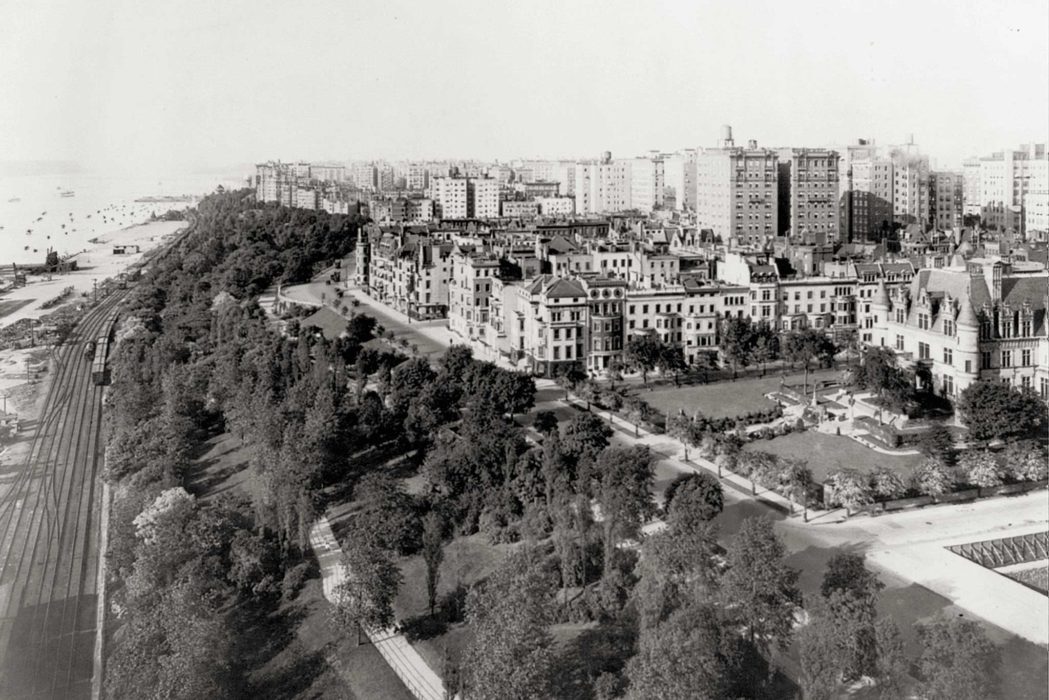THE FINAL LEG OF the voyage that carries the Hudson River south to the sea divides the New Jersey shoreline on its right from the island peninsula of Manhattan on its left. ‘Abdu’l-Bahá sat by the open window of his apartment on Riverside Drive, and looked out across the water to the steep igneous cliffs of the New Jersey Palisades, which run north from Staten Island like a gigantic wooden stockade set back from the western shore. His friends had filled his rooms with flowers.
The Hudson Apartment House was at 227 Riverside Drive, a boulevard on the western side of Manhattan that runs along the river from 72nd Street to north of Harlem, where it finally turns inland. It is a relatively quiet, upper class neighborhood with a strip of park that slopes dramatically to the water below. ‘Abdu’l-Bahá’s friends will call this park “His garden,” because he will return to it again and again.
Over the next two days ‘Abdu’l-Bahá is going to speak to a number of peace societies in the New York area, after which he will travel upstate to deliver the opening talk at the Eighteenth Annual Lake Mohonk Conference on International Arbitration. It takes place every year at a lake resort about ninety miles north of the city, nestled among the mountains. ‘Abdu’l-Bahá has stated that attending this conference is one of the primary reasons for his visit to America.
The reflective atmosphere of the apartment has now been shattered by the arrival of guests. Questions pour in. ‘Abdu’l-Bahá admits that he has “had no rest by day or night,” since his departure, and has been “either traveling, moving about or speaking.” However, “it was all so pleasantly done,” and he has been “most happy.”
‘Abdu’l-Bahá’s flat is on one of the top floors of the building. Tomorrow he will cross the river once again for a day trip to Montclair, New Jersey. Now that he has spent a month in America, his impression of us is forming. We have been “kind and pleasant,” “polite,” and “inquisitive,” he says. He finds us energetic, progressive, and full of potential.

As his audience listens, ‘Abdu’l-Bahá tells a story of the day before in Washington, when a Justice of the Supreme Court, accompanied by a DC politician, arrived to speak with him. The politician disputed ‘Abdu’l-Bahá’s position that throughout history religion has primarily been a cause of unity, rather than mainly a pretext for disagreement. Having convinced the politician, he noticed that the Justice had fallen silent. Concerned, he asked if the judge had found anything in the conversation objectionable. “Not at all! Not at all!” he replied, “It’s all right! It’s all right!” ‘Abdu’l-Bahá repeats it over and over—“All right! All right!”—and sends a ripple of laughter through the room.
“Wherever you go you hear it,” he later observed. “You ask the bell boy at the hotel to do something and he responds, ‘All right’; you inquire as to the health of a friend and he answers, ‘All right’; everything is ‘all right.’”
“I have never heard this expression used in any other country, and I believe that it reflects the optimism of this great country.”






